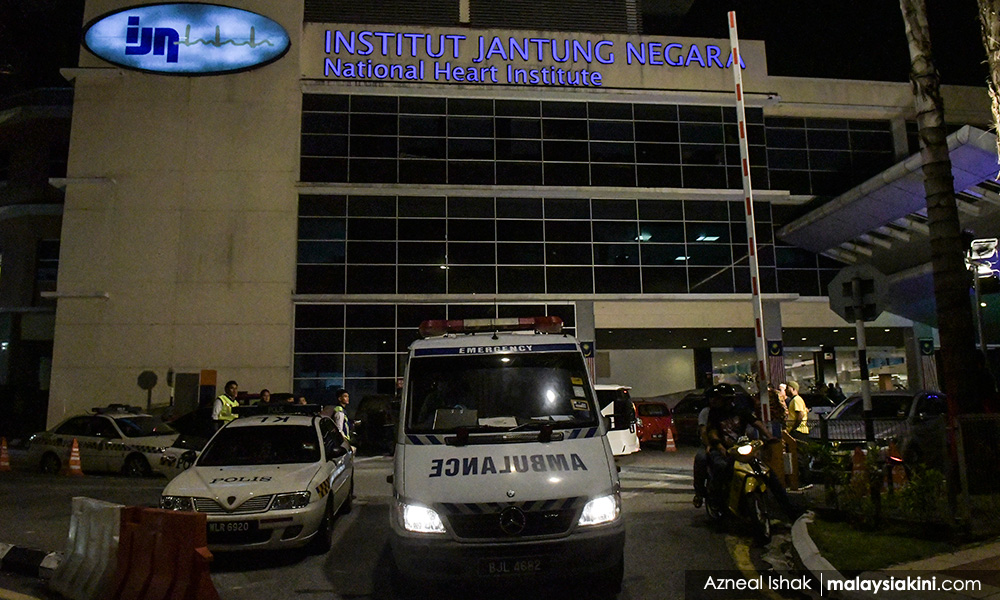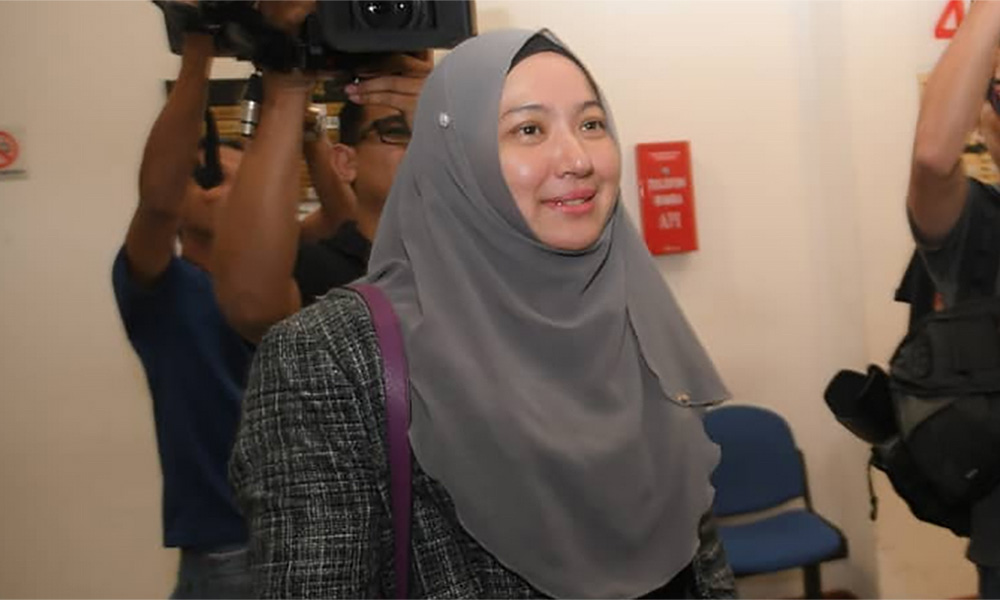
INQUEST | The late firefighter Muhammad Adib Mohd Kassim's medical report stated that he had passed away at the National Heart Institute at 9.41pm on Dec 17 last year due to acute lung failure.
IJN senior consultant cardiothoracic surgeon Dr Mohamed Ezani Md Taib, the 14th witness in the inquest to determine Adib's cause of death, said this was stated in the firefighter's medical report prepared by the team of experts who attended to him from Nov 28 until Dec 17.
"The clinical cause of death was adult respiratory distress syndrome or in other words, acute lung failure," he said to a question from the inquest's conducting officer Fatin Hadni Khairuddin.
Quizzed on the cause of Adib's lung injury, Ezani said: "This patient had a blunt chest trauma resulting from a hard object that hit his chest."
"What that hard object is, is speculative," he said.
Adib suffered multiple fractures on the right ribs and a collapsed lung (lung contusion) when he was first brought to the hospital on the night of the Seafield Seri Mahamariamman temple riots.
To further questions from lawyer Yahya Othman on whether physical assault such as multiple punches could have caused the blunt force trauma that led to Adib's internal injuries, Ezani said it was possible, but it would depend on the amount of force applied.
Earlier, Ezani said Adib had shown signs of progress from the time he was first admitted to IJN on Nov 28, but his condition once again deteriorated on Dec 14, three days before his death.
"On Dec 14, he showed signs of becoming more lethargic and short-breathed, but was still able to maintain a normal oxygenation level.
"By Dec 15 his condition had deteriorated further," said Ezani, adding that a decision was made to reconnect Adib to the Extra Corporeal Membrane Oxygenation (EMCO) system, a machine that allows an injured organ to rest by replacing its functions.

IJN consultant anaesthesiologist Dr Suneta Sulaiman (photo), the inquest's 15th witness, said she first saw Adib at SJMC and her initial examination revealed signs of lung injury, and a decision was made to start ECMO treatment for his heart and lungs.
"The patient had a lung injury which resulted in impairment of oxygenation.
"Despite the ventilator being 100 percent concentration, the blood oxygen level was not optimum. So we decided to start ECMO treatment," said Suneta, who is also an ECMO specialist and head of IJN's ICU.
After four days in the ICU, she said Adib’s heart function had recovered and the team of experts decided that Adib would be put on a different ECMO machine that only supports functions of the lungs.
"His general condition had improved but he was still critically ill.
“His kidney function was weak and he required dialysis support. At the same time he was awake and responsive to our calls and instructions,” Suneta said, adding that he was also responsive to his surroundings.
On Day 6, she said Adib was able to respond when asked if he was hurt, as he pointed to his right shoulder.
Suneta added that Adib showed various signs of improvement up until Day 14 of his treatment, including to participate in physiotherapy exercises.
"He was still given sedation medication mainly to make him stay calm and accept all treatment we are giving him.
"His motor power had improved. But he still had a generalised mild weakness," she said on his overall conditions.
Suneta will continue her testimony before coroner Rofiah Mohamad tomorrow. - Mkini



No comments:
Post a Comment
Note: Only a member of this blog may post a comment.